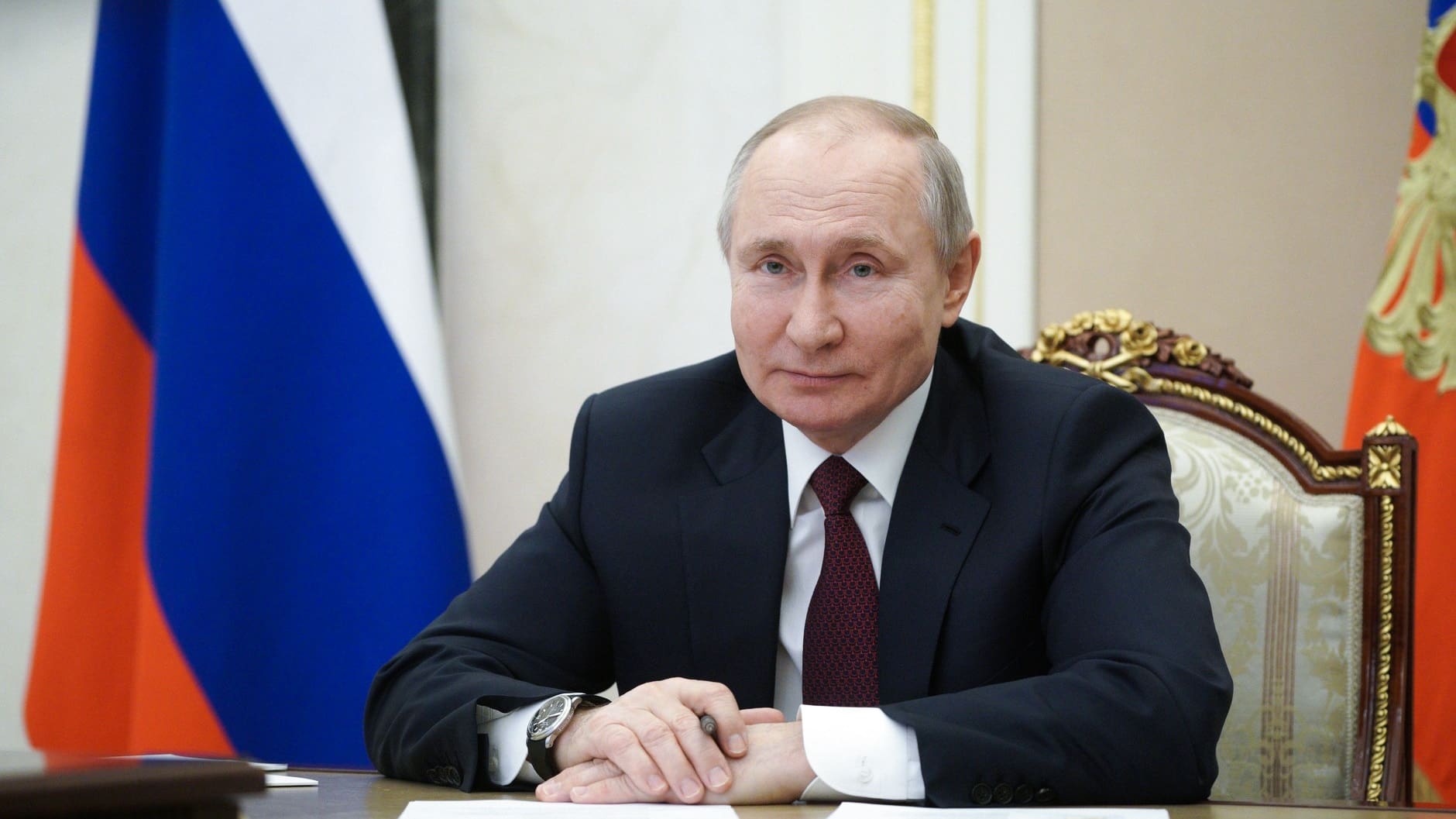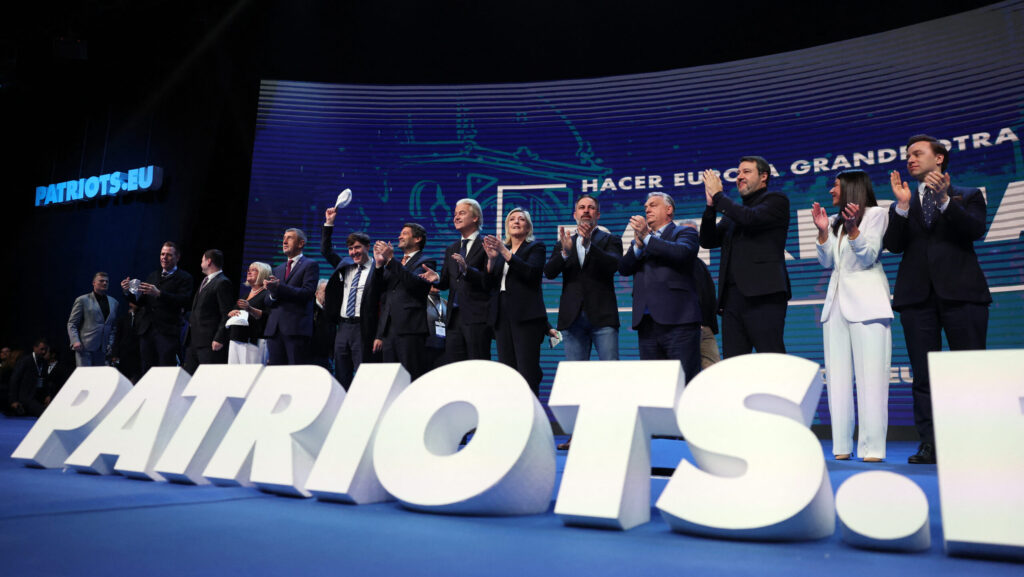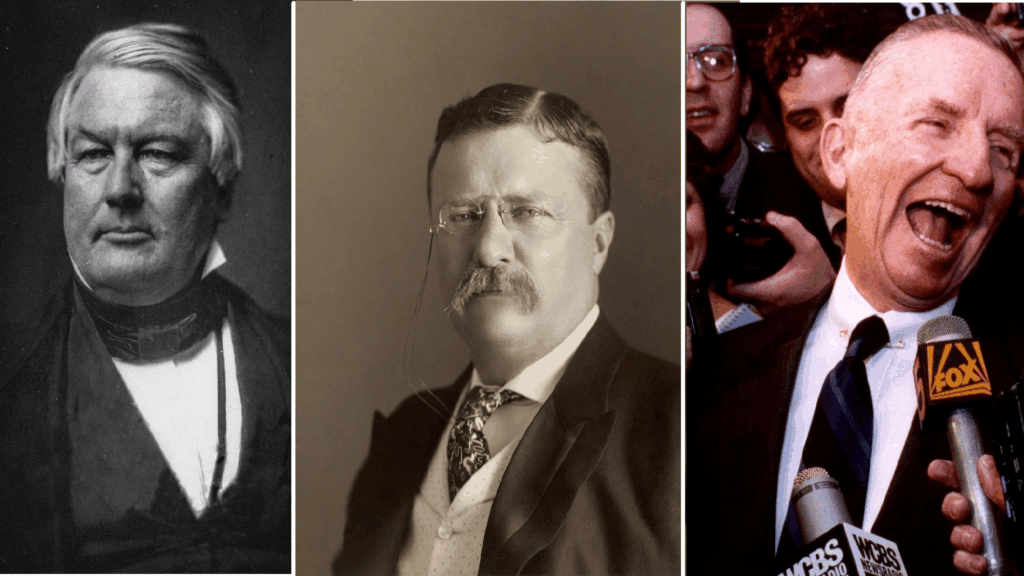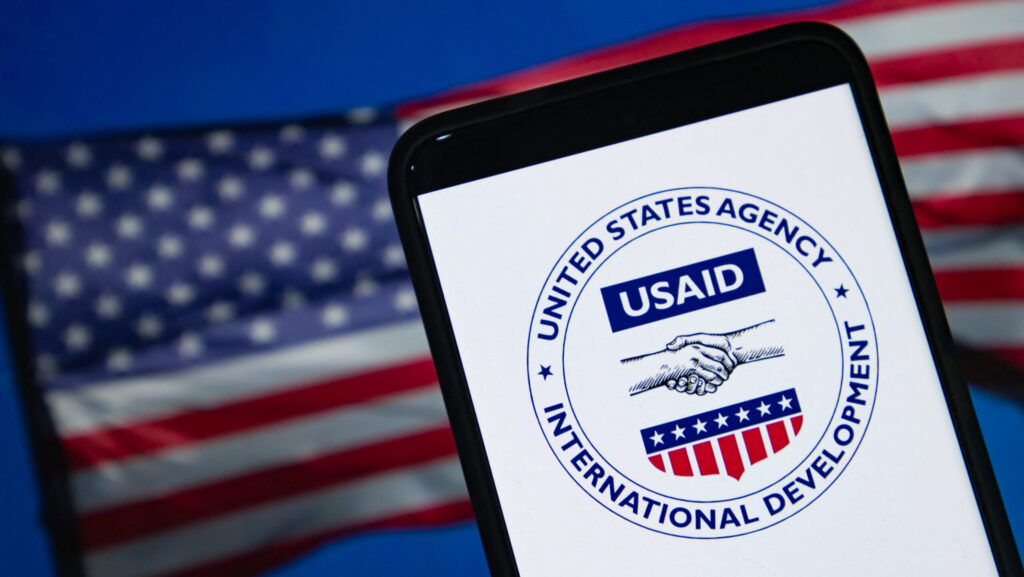A recent article published by Northeastern Global News—an online journal of Northeastern University—stated how Christian nationalists in the United States are enamoured with Russian President Vladimir Putin, notwithstanding their opposition to the Russian Federation. In fact, citing the Journal for the Scientific Study of Religion, a subsection of America’s religious right is flocking to the country’s autocratic leader in large numbers. As explained by Sarah Riccardi-Swartz, assistant professor of Religion and Anthropology at Northeastern University:
‘Even if Christian nationalists are ambivalent to Russia as a geopolitical construct or if they view it as a threat, they are still favourable towards Putin as a political figure….Even if the actions of the state are somehow violent and perpetrating violence towards another country, the man himself seems to exemplify what Christian nationalists desire, which is arguably a white ethno-state.’
Christian nationalism is a type of religious nationalism in which the end goal is to achieve an absolute Christian theocracy within a society. Its advocates primarily focus on the internal politics of society, such as legislating civil and criminal laws that reflect their view of Christianity and the role of religion in political and social life, which calls for, at least in their mindset, a strongman like Putin.
The Putin Hoop-La
In 2014, Putin made the cover of the evangelical magazine Decision in a piece in which Graham’s son Franklin lauded his handling of the Winter Olympics and his protection of Christians. Franklin visited Russia in 2015, and ever since, has promoted Putin as a godly leader. A few days before the invasion of Ukraine, he asked people to ‘pray for Putin,’ but not for Ukrainians, creating a decent amount of backlash.
The Intellectualist on Twitter: “https://t.co/1Ie0dRqSRg pic.twitter.com/IgkP3w8bsF / Twitter”
https://t.co/1Ie0dRqSRg pic.twitter.com/IgkP3w8bsF
Part of the Putin hoop-la is partly due, as per a December 2022 article by The Wall Street Journal titled Putin’s New Strategy: Laying Claim to Traditional Values, to the former KGB colonel presenting himself as a defender of ‘traditional [family] values’ and a saviour of the human race.
They like the fact that he signed into law a bill that expands Russia’s restrictions on the promotion of ‘LGBT propaganda’,
any action or the spreading of any information that is considered an attempt to promote homosexuality in public, online, or in films, books or advertising, could incur a heavy fine.
Objectively speaking, these are issues that any ethically inclined person would applaud. In fact, it seems as if Putin took a page right out of Hungarian Prime Minister Viktor Orbán’s playbook, that of safeguarding both the institution of the family and innocent children against activists who seek to enforce policies that go against the natural law as human rights.
The difference between the two nations is that Hungary, like the United Kingdom, while having Christianity enshrined in its constitution, has separated state and church affairs through the principle of religious neutrality.
As in the US, the separation of church and state allows, at least in theory, for value-based decision-making.
Since the foundation of Hungary as a Christian kingdom a thousand years ago, making it the seventh oldest country in the world in terms of self-sovereignty, the socio-religious roots cannot be ignored. Indeed, the Christianization of Hungarian society followed the Western European model, which involved adopting contemporary values and legislative solutions. The Catholic Church historically played a significant role in the formation of the Hungarian socio-political community and in the country’s political and legal affairs, as many politicians, scribes, and law experts were clergymen. However, it is an entirely
different thing with the former Soviet Union where the Christian faith is manipulated to serve the State and undermine the liberties and freedoms found in the US, and not just there.
Between Putin and Christian nationalists stands the ideal of ‘cultural and religious purity’, which is in opposition to social immoralities promoted by the left. For example, Lauren Witzke, the then-Republican Delaware candidate for Senate in 2020, has nothing but praise for Putin and claimed ‘his Christian nationalist nation….I identify more with Putin’s Christian values than I do with Joe Biden’.
That may be all good, but
there is not much of a difference between Biden and Putin when it comes to abortion.
Russia, in all reality, still has the world’s second-highest rate of abortion behind China. This is because of Putin’s ‘pro-choice’ stance on abortions. In 2017, he stated:
‘In the modern world, the decision is up to the woman herself. Any decisions on restricting abortion in the future must be careful, considered and based on the general mood in society and the moral and ethical norms that have developed in society.’
And of course, let us not forget the unjust invasion of Ukraine that began in February 2014 when Putin invaded and illegally annexed the Crimean Peninsula to the Russian Federation. Not to mention, Putin has been ruthless in suppressing anyone who voices an opinion he does not like.
In addition, not only have Russian banks funded right-wing groups like France’s National Front headed by Marine Le Pen, but Moscow has hosted international conferences on everything from neo-Nazi networking to domestic secessionists attempting to rupture and divide the American home front from within. This end goal tends to be in line with the rightwing Christian Liberty Party and the American Redoubt movements―both organized and inspired by members of the Constitution Party ―which seeks secession from the US government.
Russian-Christian Nationalism
The Russian Orthodox Patriarch of Moscow and All Rus, Kirill, who bestows guidance to more than one hundred million Russian faithful —about seventy per cent of the country’s population—has not only been a public advocate of Putin’s war in Ukraine, but has gone so far as to instruct his clergy to preach on Russia’s righteous and holy battle against a decadent West.
On 6 March at the Cathedral of Christ the Saviour in Moscow on what is known in the Orthodox Church as ‘Forgiveness Sunday’, he stated:
‘We have entered into a struggle that has not a physical, but a metaphysical significance….Today there is a test for the loyalty to this new world order, a kind of pass to that “happy” world, the world of excess consumption, the world of false “freedom”.
Do you know what this test is? The test is very simple and at the same time terrible—it is the Gay Pride parade. The demands on many to hold a gay parade are a test of their loyalty to the new world order; and we know that if people or countries reject these demands, then they do not enter into that world order, they become strangers to it.’
It is one thing to speak on ethical issues as part of religious freedom, more so if it is to defend the institution of the family: marriage exclusively between male and female. It is something else, as posted by Bitter Winter, an online magazine on religious freedom and human rights:
'[To do so] as a pretext to justify the military aggression of another country and the bombing and killing of thousands of women, men and children, and doing it as a leader of a large religious body giving a sermon in his cathedral, is—to call it with its proper name—a shame and a scandal.'
Kirill has long bolstered a version of history that insists most countries that used to be under the former Soviet Union are one people with a common religious origin: namely, the 10th-century baptism of Prince Vladimir I of Kiev, also known as St Vladimir.
Such a concept is frequently linked with a geopolitical (and geo-religious) vision that hundreds of Orthodox theologians and scholars recently decried as a heresy: a 'transnational Russian sphere or civilisation, called Holy Russia or "Holy Rus", which includes Russia, Ukraine and Belarus (and sometimes Moldova and Kazakhstan), as well as ethnic Russians and Russian-speaking people throughout the world.'
The paradox is that
anyone who believes in the institution of the family according to the natural law, and that abortion is wrong, despite his or her political allegiance, or lack thereof, is characterized as a radical or a fascist because of the aforementioned positions of Christian nationalists.
In the Church of Santa Croce in Florence, Italy, lies the Florentine humanist Niccolò Machiavelli. His tomb is designed to feature an allegorical depiction of Politics, seated on a Neo-Renaissance sarcophagus and holding in her right hand a medallion with a portrait of Machiavelli, and in her left a scale symbolizing the balance required in exercising the political arts, including diplomacy. And a balance is what is lacking in today’s Christian nationalist movement.
Related articles:








